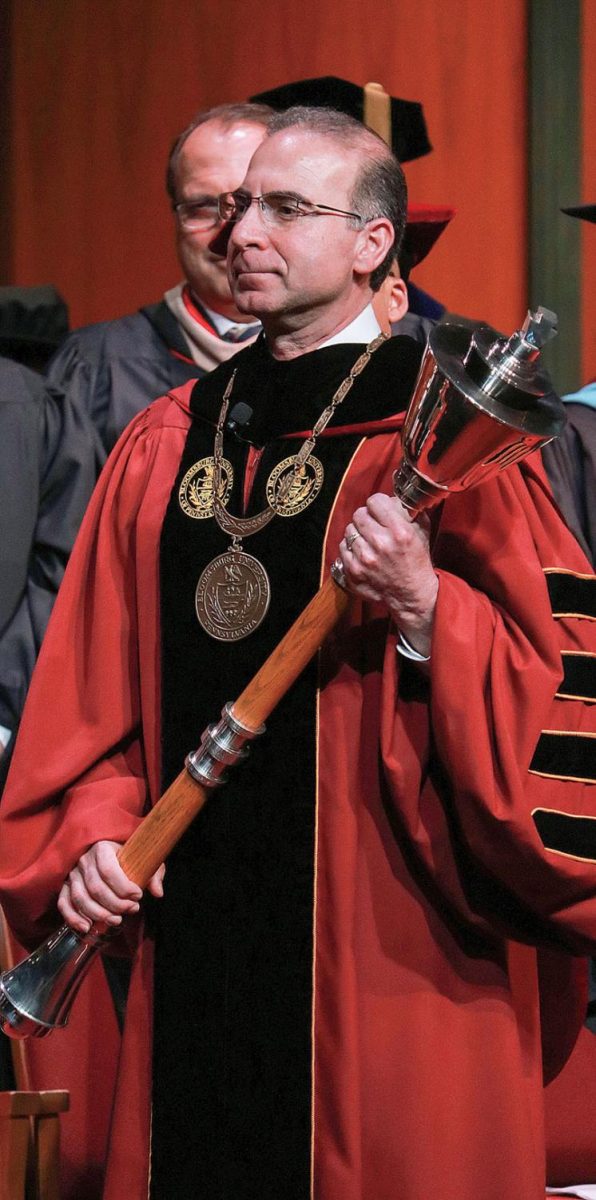Jane Theirfield Brown who is an assistant clinical professor at Yale Child Study, Yale Medical School and director of college autism, presented a lecture about students on the spectrum transitioning into the college life on Monday. She works with a clinical team who prepares students for this transition from high school to college. Brown has worked with higher education disability services since 1979 and has been to various schools lecturing, but this was her first time appearing at Bloomsburg University.
Students on the spectrum in high school get everything taken care of for them. They get provided aids, extended deadlines, and other accommodations. In college, everything changes. “College is not allowed by law to modify grades or curriculum for students with disabilities. There is no special education when you get to college,” says Brown.
When students come to college they need to learn how to think in a new perspective and learn how to be accountable for themselves. Students with autism love structure, and they get used to having a schedule before college. If you compare high school to college, there is many differences in structure. In high school you have 5-6 hours of class each day and then you would normally do your homework when you got home. Your classes only have 20-25 students in them and you only have to learn to navigate one building.
This is a specific structure that students with autism become use to. A small group, in one building, and with a specific time for lunch every day. In college you have 4-5 classes a week which gives you a lot of free time. You could eat lunch at a different time every day as well depending on what time your classes are. You also could have huge breaks in between classes. Students with autism do not know what to do with this free time. When compared to a high school classroom which is normally 20-25 students, in a college classroom there could be 10-300 students in your class. You also have to learn to navigate an entire campus, which is huge change because in high school you just had to learn your way around one building.
To be able to adjust to such a huge switch, especially for students with autism, you have to learn a few factors for college success. Those factors according to Brown are resilience, social communication, executive function, self-regulation, and academic ability. Some ways to build resilience in an individual with autism is to not accommodate every need, and teach problem solving skills along with other concrete skills. This would teach the student to be more independent as well.
To improve social communication skills, you can simply learn by watching other people. “You learn social skills by watching other people, for example where do you take your tray when your done with your food? or where do you sit in a lecture hall? The issue people have is that people with autism do not learn skills socially, they have to be specifically taught”, says Brown.
Everyone who goes to college has to go through this huge change from high school. “Students with autism need that much more time to prepare for the college life and we need to give them the time to learn independent living skills such as laundry, cooking, things of that nature,” says Brown.
The lecture ended with a question portion. A member in the audience asked “what do you suggest we as students do to help other students with autism when they come to college”. Brown replied, “acceptance, we are way past awareness, it’s acceptance.”

Jane Theirfield Brown (above) was Bloomsburg University’s guest speaker on Monday. Since 1979 she has been working with disability services and has appeared at both high schools and colleges giving her lectures. On Monday, she gave a lecture about students with autism and their transition into college. Throughout the lecture she compares how the accommodations change from high school into college for students on the spectrum.
“College is not allowed to modify grades or curriculum for students with disabilities. There is no special education when you get to college,” said Brown
















